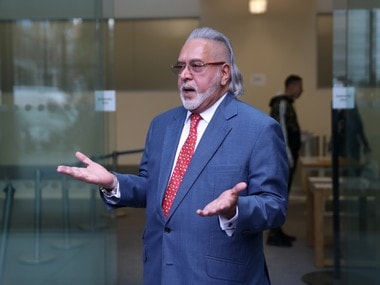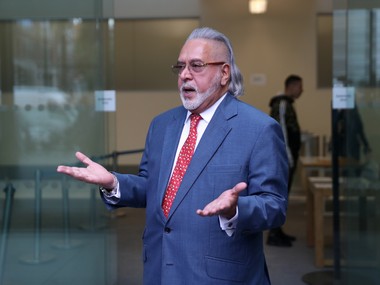In the course of an extensive interview to Arnab Goswami aired on Republic TV a couple of days ago, Prime Minister Narender Modi said the government has attached Rs 14,000 crore worth of assets of the fugitive liquor baron Vijay Mallya. Mallya tweeted, “I am vindicated” with a touch of triumphalism laced with arrogant ignorance.
I humbly submit that my assertion that I am a poster boy is fully vindicated by the PM’s own statement about me (by name)that his Govt has recovered more than what I allegedly owe the Banks. Fact that I have been a UK resident since 1992 ignored. Suits the BJP to say I ran away.
— Vijay Mallya (@TheVijayMallya) March 31, 2019
Mallya forgets that attachment by Enforcement Directorate and other law enforcing agencies is not the same as recovery of dues for the beleaguered banks. It would be a long haul with the seized assets belonging to sundry companies and trusts. Zeroing on Mallya’s share and appropriating them to pay off the banks is a complicated process and at the end of the day might possibly not result in full payment of their dues. Attachment does not mean the fugitive can be left alone and the extradition proceedings against him in London halted in its tracks as fervently wished for by the fugitive.
Mallya says he has been a UK resident since 1992 and thus exactly not a fugitive. Really? If he is not and his conscience is clear, why didn’t he appear before the law enforcing agencies in response to the notices sent to him? Had he dutifully appeared before the PMLA (Prevention of Money Laundering Act) court under the fugitive economic offences law, he would not have exposed his assets to summary appropriation under the fugitive economic law.
While laying hands on his assets indeed does partial justice to India and its taxpayers, full justice would be done only if in addition he is made to cool his heels in an Indian prison for his acts of money laundering and other financial crimes. [caption id=“attachment_5184191” align=“alignleft” width=“380”]  File photo of Vijay Mallya. Reuters[/caption] In financial crimes, disgorgement of the loot is important but equally important is deterrent punishment going beyond financial penalty. It is in this context that the fugitive’s extradition from London becomes of paramount importance. The Supreme Court let-off Sushil Ansal of Uphaar Cinema infamy from prison on the sympathetic ground that he was an octogenarian and ends of justice would be met if he constructed a specialty hospital to assuage his conscience and guilt. That was a case of callous negligence by Delhi’s Uphaar cinema management. Mallya’s is an alleged heinous financial crime involving money laundering and gaming the banking system particularly loan sanctions to suit his ends. Aside from financial punishment, a prison term of appropriate length alone would meet the ends of justice. More importantly, a comprehensive trial harking back to how he got loans to the now grounded Kingfisher Airlines on the strength of its so-called brand value would be revealing. It could bring out a number of skeletons from the cupboard including how ‘phone banking’ helped him in milking our banks. It is not only the grant of more and more loans in the manner of throwing good money after bad that arouses suspicion but also the conversion of a part of the loans to Kingfisher by banks led by the State Bank of India (SBI) into equity at a premium to the then prevailing market quotations. It is not only Mallya who would try desperately to stall his extradition from London but also others who helped him in his shenanigans for the fear of they being named by the fugitive in the Indian trial that would be far more comprehensive vis-à-vis the London trial whose focus is mainly on the limited issue of whether he should be extradited or not. Mallya would definitely use Prime Minister Narender Modi’s statement to influence the outcome of his appeal in the High Court against his extradition. Our law enforcing agencies must be ready for this obfuscation. (The author is a senior columnist and tweets @smurlidharan)


)

)
)
)
)
)
)
)
)



